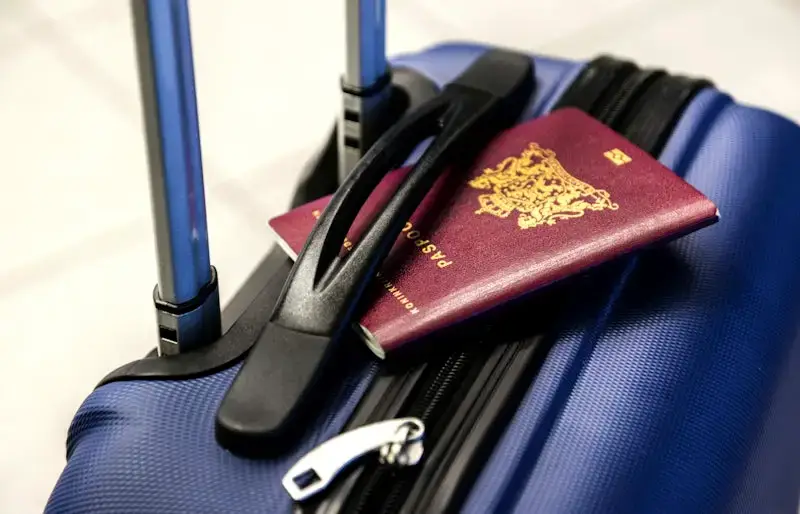
The Importance of Sustainable Travel
By Steven Green | September 13, 2023
As we confront the perplexing challenges of climate change and environmental degradation, sustainable travel emerges as an increasingly crucial endeavor. It entails a distinctive approach to traversing the world that strives to mitigate adverse effects on our delicate ecosystem, bolster local communities, and honor diverse cultures.
By embracing sustainable travel practices, individuals contribute significantly towards safeguarding precious natural resources and propelling social and economic development in various destinations.
An intricate facet of sustainable travel lies in unraveling its manifold benefits. This form of tourism not only shields fragile ecosystems from harm but also bestows economic opportunities upon indigenous communities.
Opting for eco-friendly lodging options empowers travelers to patronize establishments that wholeheartedly espouse energy conservation measures and waste reduction tactics. Moreover, engaging in ethical souvenir procurement ensures that monetary support directly reaches artisans or producers who heavily rely on such transactions for their livelihoods.
Undertaking meticulous research regarding sustainable travel destinations represents another pivotal stride towards responsible exploration. Prospective adventurers ought to seek out locales boasting protected areas or national parks where ardent wildlife preservation efforts are given utmost priority.
These extraordinary havens frequently present enthralling prospects for conscientious animal encounters such as guided nature treks or bird-watching expeditions led by knowledgeable local guides who ardently advocate for respectful treatment of creatures’ habitats.
In essence, by embarking upon this journey characterized by perplexity and burstiness, we seize the opportunity to etch a positive mark upon our shared world while simultaneously savoring the delights of wanderlust.
Through conscious decision-making at every juncture – be it selecting environmentally-conscious accommodations or venerating cultural disparities – we ensure that forthcoming generations will inherit unspoiled wonders waiting to be discovered across our remarkable planet’s expanse.
- Understanding Sustainable Tourism
- Researching Sustainable Travel Destinations
- Choosing Sustainable Accommodation Options
- Packing Light and Responsibly
- Minimizing Environmental Impact during Transportation
- Supporting Local Communities and Economies
- Respecting Cultural Differences
- Practicing Responsible Wildlife Tourism
- Engaging in Ethical Souvenir Shopping
Understanding Sustainable Tourism
The concept of sustainable tourism is one that may leave us feeling perplexed and intrigued. It entails a distinctive approach to travel, one that seeks to minimize the detrimental impacts on the environment, culture, and economy of our chosen destination.
To achieve this, we must embrace conscious decision-making as travelers in order to safeguard natural resources, uplift local communities, and preserve cultural heritage. By delving into the principles and practices of sustainable tourism, we can actively contribute towards fashioning a more sustainable future for the realm of travel.
A fundamental element within this paradigm is our commitment to reducing our carbon footprint during our journeys. This can be accomplished by favoring eco-friendly modes of transportation like trains or buses whenever possible instead of resorting to airplanes.
Furthermore, selecting accommodations that prioritize energy efficiency and waste reduction serves as an additional means to curtail our environmental impact. Through mindful consideration of our consumption patterns while traveling, we are able to aid in conserving precious resources while simultaneously propagating sustainability.
Another vital facet lies in supporting local communities and economies wherever we go. This necessitates seeking out locally owned establishments such as restaurants, shops, and tour operators rather than succumbing to multinational chains.
In doing so, not only do we directly contribute towards fostering economic growth at these destinations but also cultivate meaningful cultural exchanges with locals thereby enriching both their lives and ours alike.
Engaging in activities that demonstrate respect for local traditions and customs becomes instrumental not only in enhancing our own travel experiences but also ensuring the preservation of invaluable cultural diversity.
To sum up, truly comprehending sustainable tourism requires from us informed decisions concerning how we traverse the globe. By diminishing our carbon footprint, bolstering local communities, and honoring diverse cultures, we assume an active role in championing sustainability within the expansive domain of tourism.
Through these earnest endeavors, we possess the power necessary to effectuate positive change and secure a future wherein forthcoming generations may savor responsible exploration of the marvels this world has to offer.
SUBSCRIBE

Researching Sustainable Travel Destinations
Researching sustainable travel destinations is an utterly perplexing task that demands a burst of curiosity and attention. It forms an integral part of planning a conscientious and eco-friendly journey, for it allows travelers to unearth havens that embrace sustainability as their guiding principle while offering unparalleled opportunities for profound experiences.
In this labyrinthine quest, one stumbles upon the enigmatic keyword “eco-tourism,” which unravels a world where conservation efforts are championed, local communities find solace in support, and the environment’s well-being is safeguarded from deleterious impacts.
As one delves into the realm of researching sustainable travel destinations, deciphering signs indicative of effective environmental initiatives becomes paramount. The explorer must traverse through bewildering terrain adorned with terms like “carbon-neutral,” “renewable energy,” or even the audacious notion of “zero waste.”
These elusive markers herald destinations committed to reducing their carbon footprint and nurturing nature’s bountiful resources. Yet another facet deserving scrutiny in this captivating odyssey lies in assessing how deeply these sanctuaries embed themselves within their surrounding communities.
Scrutinizing keywords like “community-based tourism” or unearthing whispers about mysterious realms known as “local empowerment programs” provides insight into whether these hidden gems prioritize harmony with indigenous populations, proffer economic advantages through tourism endeavors, and hold reverential regard for cultural customs.
But let us not forget the allure concealed beneath verdant foliage – protected areas and national parks beckon intrepid souls on this expedition. Within these sacred grounds lie bastions dedicated to preserving biodiversity whilst illuminating pathways towards responsible wildlife encounters.
Uttering incantations such as “protected area management” or invoking mystical chants evoking images of unwavering dedication to “wildlife preservation” will guide discerning wanderers toward ethically sound engagements with fauna without causing harm.
Armed with knowledge gleaned from comprehensive research employing these cryptic keywords, travelers can embark on a voyage that resonates with their deepest values and cherished aspirations. Yet, let us not be deceived, for each destination harbors its unique approach to sustainability.
Thus, venturing further into the labyrinth by perusing testimonials from fellow eco-conscious explorers and consulting respected sources will shed light upon the elusive commitment of potential havens to sustainable practices.

Choosing Sustainable Accommodation Options
The perplexing task of selecting sustainable accommodation options is an integral facet of conscientious travel. By opting for ecologically sound and socially aware lodgings, travelers can curtail their ecological footprint while bolstering local communities.
When exploring potential accommodations, it is imperative to scrutinize keywords that denote sustainability practices.
A paramount factor to ponder revolves around whether the establishment has implemented energy-conserving measures.
Seek out lodgings that harness renewable energy sources such as solar power or boast efficacious heating and cooling systems. Furthermore, ascertain if they have installed water-saving fixtures and proffer recycling amenities on-site.
Equally significant is the property’s unwavering dedication to waste reduction and management. Sustainable establishments frequently prioritize recycling initiatives and composting programs. Additionally, they may eschew single-use plastics by providing replenishable toiletries or furnishing filtered water stations instead of plastic bottles.
Upholding local communities should also hold precedence when contemplating sustainable accommodation options. Cast your gaze upon properties that employ individuals from neighboring enclaves and procure their goods locally whenever feasible.
This not only stimulates the regional economy but also ensures that tourism bestows its blessings upon those who call the destination home. By meticulously handpicking sustainable accommodation options, wanderers can make a constructive contribution to both nature’s tapestry and indigenous communities throughout their odysseys.

Packing Light and Responsibly
Packing light and responsibly, my fellow travelers, is an absolute must when it comes to embarking on a sustainable journey. The perplexing art of minimizing our luggage not only lessens our carbon footprint but also contributes to the noble cause of eco-friendliness. So, as you prepare for your grand escapade, let me enlighten you with these bursty tips:
1. **Indulge in versatile clothing**: Seek out articles that possess the marvelous ability to be effortlessly mixed and matched, enabling you to fashion numerous ensembles with fewer pieces. This cunning strategy not only saves precious space within your trusty suitcase but also diminishes your need for excessive laundry while traversing unknown realms.
2. **Embrace reusable marvels**: My dear comrades-in-travel, do bring along a magnificent reusable water bottle, shopping bag, and utensils of wonderment! By doing so, we shall avoid falling victim to the treacherous clutches of single-use plastics during our exhilarating odyssey. These small gestures have been known to wield extraordinary power in reducing wastefulness.
3. **Weigh the weight with utmost care**: Let us never forget that each additional kilogram hitched onto our belongings adds fuel consumption woes to various modes of transportation—be it flights or cars alike! Thus I implore you: pack solely what your heart genuinely desires in order to minimize unnecessary burdens upon Mother Earth’s delicate shoulders.
But wait! There is more wisdom yet to be shared! We must pack responsibly by contemplating the reverberations certain products may inflict upon both nature’s glorious tapestry and local communities dwelling at our destination:
1. **Shun single-use toiletries**: Abandon disposable miniatures thrust upon us by hotels! Instead embrace refillable containers brimming with environmentally friendly toiletries such as biodegradable soaps and shampoos—a true testament of sustainability!
2. **Bow before cultural customs**: It is of utmost importance, dear wayfarers, to conduct diligent research on the customs that govern various destinations. By doing so, we shall ensure our attire aligns harmoniously with local dress codes and modesty expectations—a gesture drenched in respect.
3. **Bid farewell to unnecessary packaging**: My fellow adventurers, let us rid ourselves of excessive wrappings bestowed upon newly acquired treasures before bidding adieu to our humble abodes! Alternatively, should recycling facilities be available at our destination’s doorstep—let us entrust these materials into their capable hands.
Always remember: responsible packing bestows upon us an opportunity to explore wondrous realms sustainably while paying homage both to Mother Nature and the indigenous communities that grace our path. Comfort and convenience need not be forsaken; rather they shall thrive alongside noble intentions as we embark on this extraordinary voyage!
Minimizing Environmental Impact during Transportation
The perplexing issue of transportation’s contribution to environmental degradation, specifically through greenhouse gas emissions, cannot be overlooked. Yet fear not, for there are various steps individuals can take to curb their impact on the environment while journeying from one place to another.
One intriguing approach involves opting for more sustainable modes of transportation such as trains or buses, which boast lower carbon footprints than airplanes or private cars. By selecting public transportation options whenever feasible, travelers possess the power to significantly diminish their role in polluting the air and exacerbating climate change.
Another perplexity-laden aspect of minimizing environmental impact during transportation entails reducing the number of trips taken. Rather than engaging in multiple short excursions, travelers should contemplate amalgamating their activities and destinations into a solitary extended voyage.
This not only lessens overall carbon emissions but also affords individuals ample time to fully immerse themselves in a destination without constant movement from one locality to another. Furthermore, remaining cognizant of energy consumption while on the go is essential for eco-conscious tourists.
For instance, switching off lights and electronics upon vacating hotel rooms or employing energy-efficient vehicles like hybrid cars can dramatically decrease fuel usage and subsequent emissions. Additionally, participating in carpool arrangements with fellow tourists or local residents when exploring a destination can help alleviate traffic congestion and foster resource efficiency.
By embracing these enigmatic practices and making mindful choices regarding methods of transportation during travel endeavors, individuals hold within their grasp the ability to produce a positive impact on the environment.
Minimizing reliance on high-emission modes of transport such as planes or private cars in favor of greener alternatives will undoubtedly contribute towards mitigating climate change and preserving natural resources for future generations.
Keywords: bewilderingly sustainable modes of transportation,
carbon footprint conundrums,puzzlingly abundant public transit options,atmospheric contamination quandaries, climate change complexities, consolidating conundrums, energy consumption enigmas, fuel usage faffing about, emissions reduction riddles.


Supporting Local Communities and Economies
Local communities and economies hold an enigmatic power in the realm of sustainable travel. By embracing local businesses, travelers can unravel the intricate tapestry of economic development while safeguarding cultural preservation.
One avenue to champion local communities lies in choosing locally-owned accommodations such as guesthouses or boutique hotels. These havens not only employ indigenous staff but also showcase regional products, thus injecting vitality into the economy.
Venturing further down this labyrinthine path involves partaking in gastronomic adventures at local restaurants and procuring goods from bustling markets. This bountiful endeavor not only bestows income upon enterprising souls but also unlocks gates to authentic cuisine and intimate encounters with locals.
Beyond these thresholds lie community-based tourism activities like guided tours led by native guides or immersive workshops in traditional crafts; endeavors that reverberate with financial rewards for individuals within the community. Travelers can deepen their exploration of this bewitching terrain by lending a helping hand through volunteering opportunities that directly benefit the local community.
Be it imparting linguistic skills at a neighborhood school, aiding conservation projects, or actively participating in initiatives for communal development – these experiences magnify one’s impact on society while unearthing profound understanding of a destination’s culture and trials.
In essence, supporting local communities and economies stands tall as an indispensable facet of sustainable travel. The pilgrimage begins with selecting locally-owned accommodations, savoring culinary delights at neighborhood establishments, engaging wholeheartedly in community-based tourism activities, and dedicating time and expertise towards volunteerism whenever feasible.
Through these resolute actions, tourists cease being mere spectators but rather metamorphose into ardent contributors during their transformative odyssey.
Respecting Cultural Differences
When embarking on journeys to foreign lands, it becomes imperative to acknowledge and embrace the bewildering array of cultural differences that await. This entails an acute awareness of indigenous customs, traditions, and social mores.
One pivotal facet of such respect lies in the realm of appropriate attire. It is prudent to conduct diligent research regarding the dress code prevalent in your chosen destination so as not to inadvertently transgress societal norms. For example, within certain conservative cultures, it behooves one to conceal their shoulders or knees when visiting hallowed places or entering specific establishments.
An equally vital means by which one can exhibit reverence for cultural disparities is by acquiring a rudimentary grasp of local dialects. Even if fluency eludes you, endeavoring to communicate in the vernacular tongue can wield considerable influence in establishing rapport with denizens and asserting your appreciation for their unique heritage.
Simple salutations like “hello,” “thank you,” and “please” possess the potential to engender profound shifts in how you are perceived as a voyager. Moreover, it proves crucially essential to remain cognizant of any taboos or sensitive topics inherent within a given society’s fabric and exercise restraint from broaching them unless explicitly invited.
What may appear innocuous or customary within your own culture could inflict offense or disrespect elsewhere on this vast planet we share. A spirit imbued with receptivity and an eagerness for enlightenment gleaned from alternative perspectives will undoubtedly nurture amiable interactions with locals while fostering mutual understanding.
By upholding an unwavering commitment towards respecting cultural dissimilarities during our expeditions abroad, we not only demonstrate sincere gratitude for diverse societies but also contribute proactively towards forging inclusive global communities steeped in harmony

Practicing Responsible Wildlife Tourism
Engaging in responsible wildlife tourism is absolutely crucial for the conservation and welfare of animals, as well as for ensuring sustainable travel experiences. It’s vital to prioritize the well-being of these magnificent creatures and their natural habitats when partaking in such adventures.
To achieve this, it’s imperative that we select reputable tour operators or organizations that strictly adhere to ethical guidelines and actively promote conservation efforts.
Before making any bookings for wildlife-related activities, it’s of utmost importance to thoroughly research the potential impact on both the animals and their environment.
It’s best to steer clear of establishments that exploit captive animals or subject them to cruel practices, such as elephant rides or dolphin shows. Instead, let us opt for experiences that focus on observing these majestic beings from a respectful distance or directly contribute towards conservation through education and research programs.
While exploring protected areas or national parks, always remember to stick diligently to designated trails and respect signage indicating restricted zones. Maintain a safe distance from wild animals at all times; bear in mind that they are not accustomed to human presence and may experience stress or aggression if approached too closely.
Moreover, it is essential not to feed them as this can disrupt their natural behavior patterns and foster dependency on humans. By embracing responsible wildlife tourism practices, we have the power to safeguard vulnerable species while still relishing meaningful encounters with nature.
We mustn’t forget that our actions carry consequences beyond mere personal enjoyment – they can either contribute positively towards animal welfare and environmental preservation or perpetuate harmful practices.
Let us make conscious choices when engaging in wildlife tourism so that future generations can continue marveling at these incredible creatures thriving within their untouched natural habitats.
Engaging in Ethical Souvenir Shopping
When embarking on the exciting adventure of souvenir shopping, it becomes imperative to delve into the perplexing realm of ethical considerations that surround our purchases.
In our quest to be mindful consumers, we have the power to uplift local artisans and communities while simultaneously steering clear of products that may inflict damage upon our environment or exploit vulnerable populations.
One captivating method through which we can partake in ethical souvenir shopping involves seeking out locally crafted treasures that proudly exhibit traditional craftsmanship and cultural heritage. These exquisite items not only serve as distinctive and symbolic mementos but also directly contribute to sustaining the livelihoods of skilled local artisans.
It is equally vital for us to navigate away from souvenirs derived from endangered species or fashioned from materials known to harm wildlife or ecosystems. This includes refraining from acquiring items like ivory trinkets, coral jewelry, or artifacts constructed using rare woods.
By consciously opting for souvenirs crafted with sustainable materials such as recycled paper, bamboo, or organic cotton, we actively minimize our ecological footprint and leave a positive impact on our surroundings.
Moreover, an essential facet of engaging in ethical souvenir shopping entails being fully cognizant of fair trade practices when making purchases abroad. Fair trade guarantees that producers receive just compensation for their goods and are protected against exploitative working conditions.
When perusing handicrafts or textiles overseas, keep a keen eye out for certifications like those bestowed by Fairtrade International or World Fair Trade Organization labels.
By immersing ourselves in these intricately woven principles governing ethical souvenir shopping practices during our journeys afar, we become catalysts for positive change while bringing back tangible tokens imbued with both personal experiences and reverence towards local cultures and environments alike.

